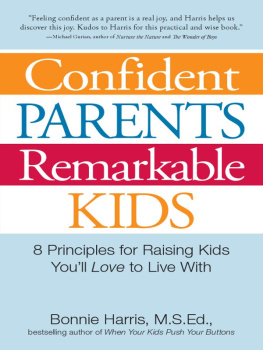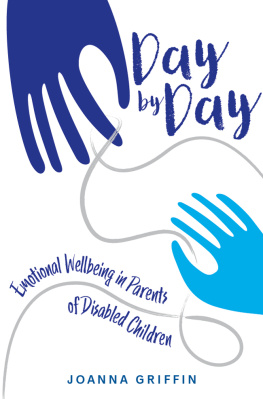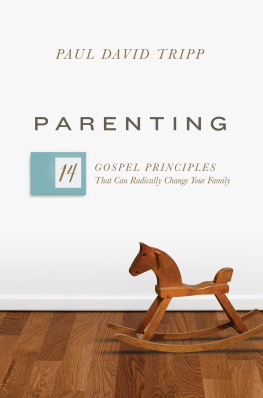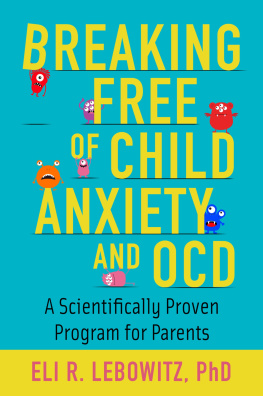A CONSTANT BURDEN
Ashgate Classics in Sociology
Series Editors:
Robert Dingwall, University of Nottingham, UK
Alan Aldridge, University of Nottingham, UK
Tim Strandleman, London Metropolitan University, UK
This series is the successor to Cardiff Classics in Medical Sociology, expanding the publishing agenda of the original series to include reprints and revised editions of influential works accross the discipline of sociology and collections of key articles by well-known sociologists.
Also in the series:
Identifying Hyperactive Children
The Medicalization of Deviant Behavior
Expanded Edition
Peter Conrad
ISBN 0 7546 4518 5
Sociology and Medicine
Selected Essays by P.M. Strong
Edited by Anne Murcott
ISBN 0 7546 3844 8
Essays on Professions
Robert Dingwall
ISBN 0 7546 4614 9
A Constant Burden
The Reconstitution of Family Life
Margaret Voysey Paun
First published 1975 by Ashgate Publishing
Reissued 2018 by Routledge
2 Park Square, Milton Park, Abingdon, Oxon, OX14 4RN
711 Third Avenue, New York, NY 10017, USA
Routledge is an imprint of the Taylor & Francis Group, an informa business
Margaret Voysey Paun 2006
Margaret Voysey Paun has asserted her moral right under the Copyright, Designs and Patents Act, 1988, to be identified as the author of this work.
All rights reserved. No part of this book may be reprinted or reproduced or utilised in any form or by any electronic, mechanical, or other means, now known or hereafter invented, including photocopying and recording, or in any information storage or retrieval system, without permission in writing from the publishers.
A Library of Congress record exists under LC control number: 2006929150
Notice:
Product or corporate names may be trademarks or registered trademarks, and are used only for identification and explanation without intent to infringe.
Publishers Note
The publisher has gone to great lengths to ensure the quality of this reprint but points out that some imperfections in the original copies may be apparent.
Disclaimer
The publisher has made every effort to trace copyright holders and welcomes correspondence from those they have been unable to contact.
ISBN 13: 978-0-815-38565-3 (hbk)
ISBN 13: 978-1-351-16360-6 (ebk)
Robert Dingwall
A Constant Burden is one of the cult classics of medical sociology. It is, however, a book whose methodological insights deserve the attention of any qualitative sociologist, whatever their specific field of study. Like most cult books, its classic status partly reflects its sheer unobtainability. Those of us who had the privilege and good fortune to buy copies when it was originally published have cherished the book, lent it to our graduate students and chased its return. Colleagues tell me that it ranks high among the key texts that most frequently vanish from campus libraries.
Why is this book so important? One reason why sociologists return to historic texts is that problems are often stated with a clarity that gets lost in later work, as they are probed, refined and become more complex. This book has a fascinating account of the predicament of the parents of children with severe disabilities. What is telling, however, is the way that this predicament is seen as less to do with the inner life of the parents or the family, which Voysey Paun shows to be essentially unknowable. She does this through an account of compelling personal and intellectual honesty that chronicles her journey from a would-be moral reformer and political advocate on behalf of people with disabilities and their carers to a recognition that her interviews can only tell her about the faces that these parents present to the world. In the end, even the best-intentioned sociologists do not change the world, merely help others to understand it a little better.
The key to Voysey Pauns conversion is her engagement with ethnomethodology. Indeed, part of the interest of this book is that it is one of the very first ethnomethodological studies to be published in the UK. Through this, she came to understand that the interviews with parents were not literal descriptions of their family lives but moral accounts, designed to demonstrate their essential normality in the face of the overwhelming challenges represented by the severe disabilities affecting their children. Parents had no choice but to demonstrate their competence as parents despite the massive and observable discrepancies between their situation and that of parents of normal children. In doing so, her account does not lose its moral force so much as redirect this in anticipating what was to become the conventional wisdom of disability studies, namely the extent to which the expectations of the able-bodied constitute problems for those with disabilities. The practical difficulties of parenting children with severe disabilities are concealed by the expectation that parents will manage, will bring off their own normality.
In the years since, Voysey Pauns methodological lessons have had significant currency but their inaccessibility has curtailed their impact. Qualitative research is still bedevilled by the nave belief that interviews can easily yield information about experiences and sites inaccessible to the observer. We continue to see the self-righteous identification between qualitative methods and social radicalism that Voysey Paun chastizes herself for adopting at the beginning of her project. In those respects, Voysey Pauns work remains as fresh, as relevant and as challenging as the day it was first published thirty years ago.
It is thirty years since the first publication of this book and nearly forty since I first went to Aberdeen as a research assistant to begin the project on which it was based. I am extremely grateful to Robert Dingwall, a younger contemporary at Aberdeen, for suggesting that it was worth republishing in this series. I am honoured that the book is being accorded classic status in the company of some of my dear friends and ex colleagues.
I should like to take this opportunity to make plain my thanks also and great debt to Raymond Illsley, who gave me my first job in the then one-year-old Sociology Department in Aberdeen. At 21, and a psychology major, I certainly did not know how lucky I was to have joined what was soon to be such an exciting place to be a sociologist. All I had to offer, it seemed to me, was a fervid attachment to Erving Goffman and R.D. Laing and a corresponding aversion to positivist methodology. (For these early influences I am indebted to University College Cardiff which then organized its economics and social science teaching with such flexibility between disciplines and with compulsory shared methodology, statistics and economics courses.)
In 1966 the Aberdeen university staff room at Kings college in 1966 was a dispiriting sea of brown and green tweed and almost entirely male. So were many pubs and they all closed on Sundays, the weather was pretty dismal and we were 500 miles from swinging London. My idea of a fun night out was the weekly meeting of the Young Communist League. But the intellectual climate that developed over the next few years, with constant interaction between the sociology teaching department and the Medical Research Council Medical Sociology Unit was inspirational, supportive and generous, even to a fault.








